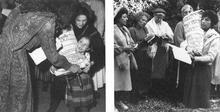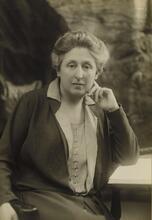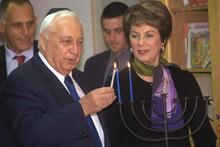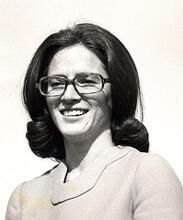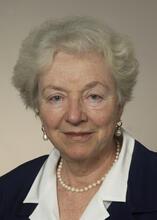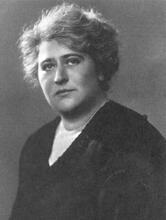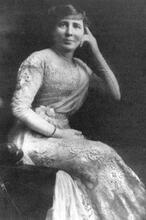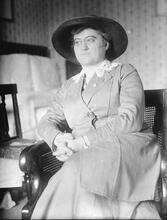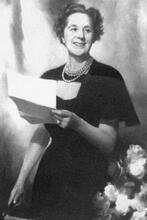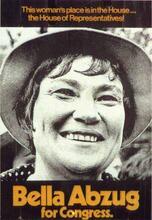Matilda Steinam Kubie
Although married to a high-profile businessman, Matilda Steinam Kubie established her own public presence through her philanthropic leadership. In 1917, as chair of publicity for the Federation for the Support of Jewish Philanthropies of New York City, she launched a promotional campaign for the Federation. She served on the boards of the Young Women’s Hebrew Association and the Jewish Big Sisters, among others. In 1922, the commissioner of New York City’s Department of Public Welfare appointed her honorary deputy to assist in relations between the department and Jewish direct service agencies. During her time with the Federation of Jewish Women’s Organizations of New York, she handled publicity and fundraising and helped increase membership from 35 to 280 organizations. During World War II, despite being past retirement age, she worked for relief organizations for many different countries worldwide, remaining active until her death.
Born in the Midwest, Matilda Steinam Kubie spent her adult life as a resident of New York City. Although often identified as Mrs. Isaac Kubie, she created a public persona distinct from that of her husband, becoming actively involved in a large array of civic and welfare organizations. A member of the Free Synagogue and Congregation Emanu-El, she dedicated much of her time and energy to strengthening New York’s institutional infrastructure of Jewish philanthropies.
Early Life and Family
Matilda Steinam Kubie, the daughter of Simon and Fannie (Wolff) Steinam, was born on September 13, 1869, in La Crosse, Wisconsin. She attended the Normal College (later known as Hunter College) in New York City, graduating in 1888. She married Isaac Kubie, the son of Albert and Theresa Kubie, on November 12, 1914. The fifty-eight-year-old groom was president of the Kubie Corporation, an exporting and importing business located on Wall Street, and was Matilda’s senior by thirteen years. Soon after their marriage, Matilda Kubie undertook charitable work, assisting in various emergency war fund drives, most notably as a chair of the Salvation Army Fund Drive.
Jewish Philanthropy
In 1917, Kubie became chair of publicity for the newly formed Federation for the Support of Jewish Philanthropic Societies of New York City, an organization dedicated to coordinating and supporting the activities of Jewish charities. During her long association with the federation, she served as associate chair of the women’s division, director of the Business Men’s Council in 1920, and honorary trustee-at-large for life. Her accomplishments in these roles were manifold: She obtained free advertising space in the newspaper ads of department stores, on outdoor billboards, in the programs of Carnegie Hall and the Metropolitan Opera House, and during the broadcasts of several radio stations, including the municipally owned WNYC. Within five years after joining the federation, Kubie was on the boards of the Young Women’s Hebrew Association, the Beth-El Sisterhood, and the Jewish Big Sisters, and had become the membership secretary of the Jewish Women’s Organization. In 1922, Bird S. Coler, commissioner of New York City’s Department of Public Welfare, recognized Kubie’s work by appointing her an honorary deputy to assist in relations between the department and agencies that cared for Jewish dependents. Kubie was the only woman to hold such a post.
On June 1, 1926, Isaac Kubie died at age seventy. Like his wife, he had participated actively in nonprofit organizations, serving as vice president of the Freundschaft Society and as a member of the Home for Aged and Infirm Hebrews. After Isaac’s death, Kubie multiplied her activities during the interwar period, engaging in both religious and secular pursuits. During her tenures as vice president, chair of membership and publicity, and chair of the committee on employment and vocational problems of the Federation of Jewish Women’s Organizations of Greater New York, membership of the federation increased from 35 to 280 affiliates. Kubie also assisted in the publicity and fund-raising campaigns of the Henry Street Settlement, helped to publicize several United Jewish campaigns, and was a member of such organizations as the American Birth Control League and the League of Women Voters.
Later Life and Legacy
With the coming of World War II, she offered her talents to British, French, Greek, Chinese, and Russian relief organizations. In 1942, she served as chair of the local Red Cross War Fund’s committee on foreign press relations, praising the foreign-language media for their support of the fund. She did not live to see the end of the war, passing away at her Central Park West home on February 19, 1944, at age seventy-four.
Wife of a prosperous businessman, resident of a fashionable New York City district, Matilda Kubie, like other society women of her era, chose to direct her energies toward the support and growth of charitable institutions that sought to better the lives of those in the Jewish community.
AJYB 46:340.
BEOAJ. “Isaac Kubie Dead at 70.” NYTimes, June 2, 1926: 25.
Obituary. NYTimes, February 19, 1944: 13:4.
“Red Cross Plans Plea to City Aides.” NYTimes, January 23, 1942: 23.
UJE.
“Walker Asks All to Aid Jewish Drive.” NYTimes, May 5, 1926: 22.
“Woman a Welfare Deputy.” NYTimes, May 7, 1922: 20.
WWIAJ (1938).

